Getting proximate featuring Tara Westover and Hilary Pennington
Transcript
[Getting proximate. Tara Westover, Author, “Educated”. A white woman wearing jeans and a striped blazer. Hilary Pennington, executive vice president, Ford Foundation. A white woman with short blonde hair, wearing a cream colored skirt and top.]
ANNOUNCER: Please welcome Hilary Pennington and Tara Westover.
[applause]
HILARY PENNINGTON: Let me start out with your memoir. In “Educated,” you detail your childhood growing up without a formal education. Your parents were survivalists, and while they taught you things like herbal medicine and how to survive in the wild, you had to teach yourself—
TARA WESTOVER: Skills I use every day.
HILARY PENNINGTON: … everything—every day—other students learned in school. And it wasn’t until college, at 17, when you stepped into a classroom for the first time. And your background is incredibly unique, and it’s given you perspectives that we are eager to hear more about today. If there were a thing you wish people, you know, the kinds of people in this room, could understand about people who are in parts of the country like that—rural areas, Middle America—could understand, what would it be?
TARA WESTOVER: I think that there’s something in rural culture that is very independent-minded and is—has a little bit of go-it-alone mentality. But I actually think they have that, but they’re getting it from us, as well. There’s a real sense in which I think we’ve come right to the edge of a doctrine of disconnection, which is to say that if New York is thriving and Los Angeles are thriving and San Francisco are thriving—that it doesn’t matter if everywhere else is doing badly. And I think that, it’s easy to believe that because we’re so insular and everyone we know is doing fine. And we don’t realize there’s an awful lot of parts of this country that are really, really struggling. I mean, the whole ecosystem is, is dying, and I think it’s an urban-rural thing. I think the cities are doing great under automation. The cities are doing great under globalization. The modern economy is built for the cities.
HILARY PENNINGTON: Right.
TARA WESTOVER: And we have to ask ourselves some serious questions about, what are we
going to do about the rest of the country that isn’t growing?
HILARY PENNINGTON: And what do you think?
TARA WESTOVER: I think that if we want them to believe that we’re all in it together and we’re all fighting the same fight, we have to send them that message. And right now the message we’re sending them is: “We’re doing fine. We don’t care what’s happening to you, because we’re fine.” I think you have to spend time with people who aren’t like you. That’s the ideal. I mean, New York’s kind of a lost cause for that, I feel like.
[laughter]
HILARY PENNINGTON: One of the most parochial cities in the country.
TARA WESTOVER: I find there’s different ways to be parochial, and I find New York—I think you can define parochial as less educated and less sophisticated in how many box symphonies or whatever can you—or concertos can you name. That’s one way to be sophisticated. And that’s nice. Um, but, uh, the other—I think that the other kind of parochialism is how much access do you have to people and worldviews that are different from you? And I’ve lived in New York a year. I’ve never lived anywhere that it’s harder—truly difficult—to have meaningful interactions with people who are not of your same socioeconomic group. I’ve never—there’s a meaningful sense in which I would say New York is possibly the most parochial place I’ve lived, by that other definition. That’s a whole different level of stratification, when you don’t even know anybody who doesn’t have your income and your education level. And how can you have true empathy or know what problems people are facing, or try to not talk in a condescending way, if you don’t have anyone in your life that you deeply care about who is on the other side of that divide?
HILARY PENNINGTON: Thank you. That is a challenge for the rest of the day.
TARA WESTOVER: Good luck.
[Applause.]
[New gospel of wealth. What does #GenerosityToJustice look like to you? Ford Foundation dot org forward slash new gospel.]
Accessibility Statement
- All videos produced by the Ford Foundation since 2020 include captions and downloadable transcripts. For videos where visuals require additional understanding, we offer audio-described versions.
- We are continuing to make videos produced prior to 2020 accessible.
- Videos from third-party sources (those not produced by the Ford Foundation) may not have captions, accessible transcripts, or audio descriptions.
- To improve accessibility beyond our site, we’ve created a free video accessibility WordPress plug-in.
Tara Westover, author of “Educated,” explains why philanthropists need to be more proximate to the issues they care about and what that looks like. Moderated by Hilary Pennington, Ford Foundation executive vice president of programs.
“I think you have to spend time with people who aren’t like you. That’s the ideal.”
– Tara Westover
Learn more about New Gospel of Wealth
Other videos in this series
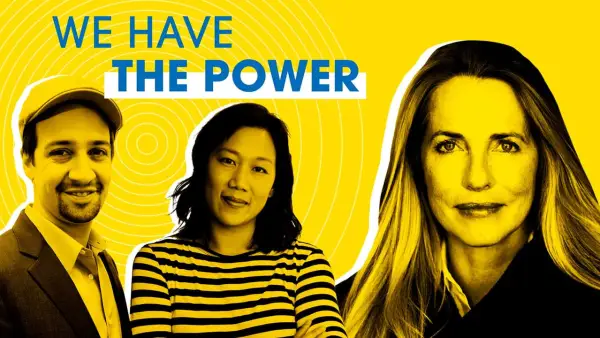
Let’s rethink giving
How can we reimagine philanthropy so that we create a future where there is justice and dignity for all? What are the root causes of the issues and how do we encourage the participation of many and not just a few?
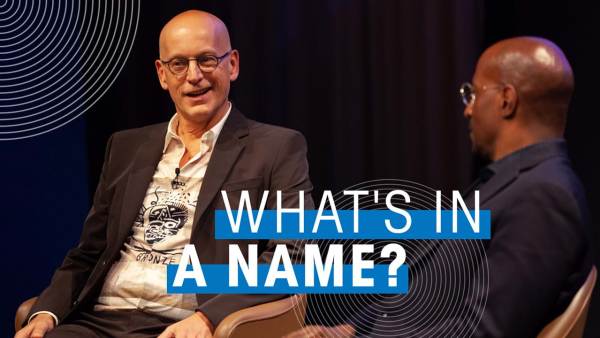
The power of a name featuring Jon Stryker and Van Jones
As a philanthropist, Jon Stryker, president of the Arcus Foundation, believes the act of naming gives power and influence to the work that is supported through his gifts. His philanthropy supports those on the frontlines of justice, providing resources and power to those who need it most.
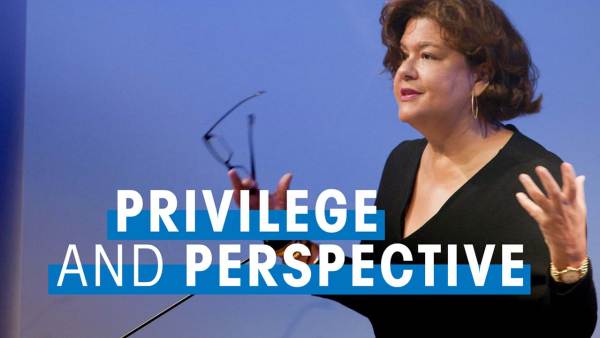
The privilege of perspective featuring Elizabeth Alexander
Elizabeth Alexander, president of the Andrew W. Mellon Foundation, on art, activism, and acknowledging adversity.
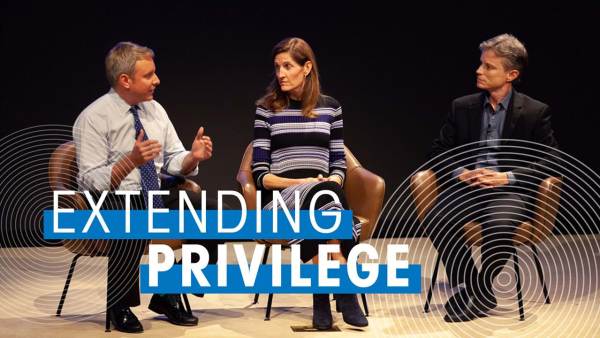
Extending privilege featuring Valerie Rockefeller and Henry Ford III
Henry Ford III, trustee of the Ford Foundation, and Valerie Rockefeller, chair of the Rockefeller Brothers Fund, discuss transforming philanthropy for the 21st century. The families have seen the value of impact investing and believe in partnerships to increase the difference that can be made.
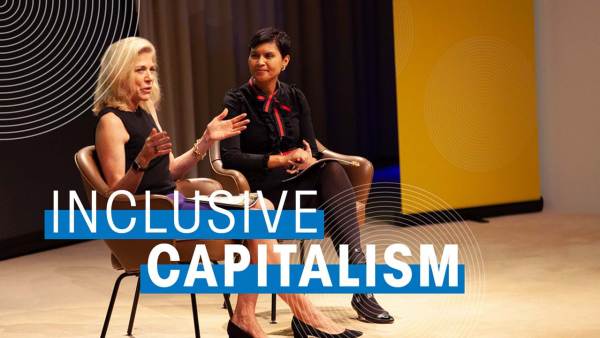
Can capitalism ever really be inclusive? featuring Lynn Forester de Rothschild and Stephanie Mehta
The top 1 percent of the United States controls 42 percent of the national wealth. Lynn Forester de Rothschild, founder of the Center for Inclusive Capitalism, explains that reimagining the economy and making it a sustainable, inclusive system that leads to strong economic growth requires reform.
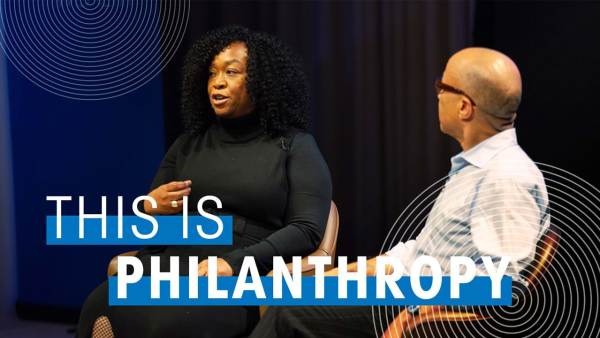
This is what a philanthropist looks like featuring Shonda Rhimes and Darren Walker
Writer and producer Shonda Rhimes has seen the power storytelling has to make change through her work, which centers marginalized people and issues. Rhimes believes philanthropy sets an example others can follow, and says supporting organizations that are already on the ground doing the work is key.
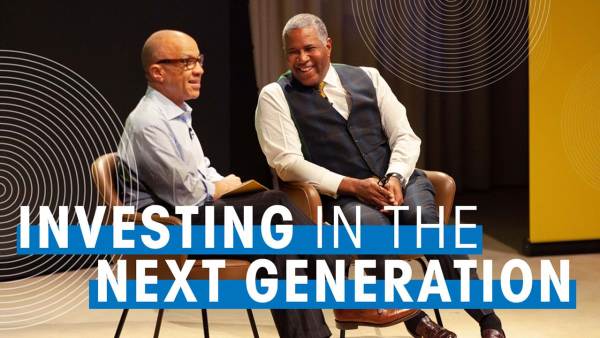
Catalyzing the potential of our time featuring Robert Smith and Darren Walker
Through philanthropy, Robert Smith, CEO of Vista Equity Partners, has alleviated the burden of student debt for a graduating class. He says private philanthropy can help address public policy challenges, such as student loan debt, and is a disruptive opportunity that liberates people to contribute to society in positive ways.
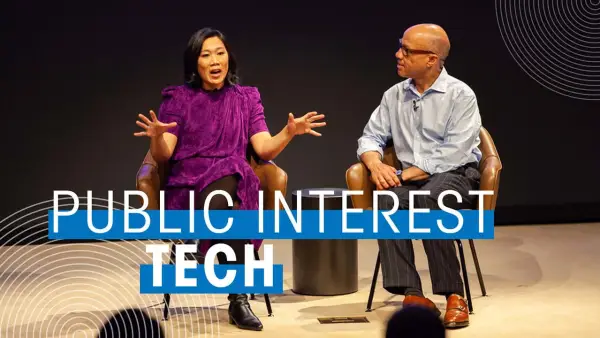
Tech funders changing philanthropy featuring Priscilla Chan & Darren Walker
The top 1 percent of the United States controls 42 percent of the national wealth. Lynn Forester de Rothschild, founder of the Center for Inclusive Capitalism, explains that reimagining the economy and making it a sustainable, inclusive system that leads to strong economic growth requires reform.
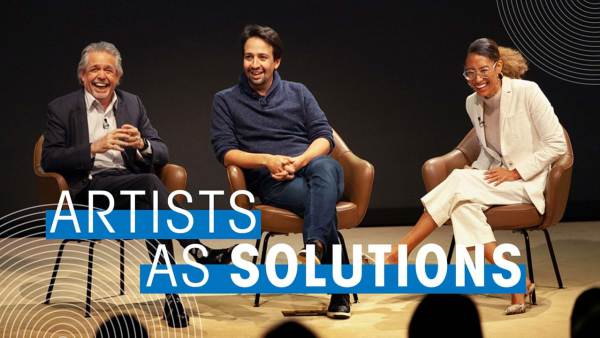
Why artists shouldn’t stay in their lane featuring Lin-Manuel Miranda, Luis Miranda Jr. and Elaine Welteroth
Composer and actor Lin-Manuel Miranda believes all art is political. He and his father, Luis A. Miranda Jr. of the MirRam Group, see the value philanthropy has to empower communities that may have been neglected, and allow them to share their stories through the arts, like Puerto Rico did after Hurricane Maria.
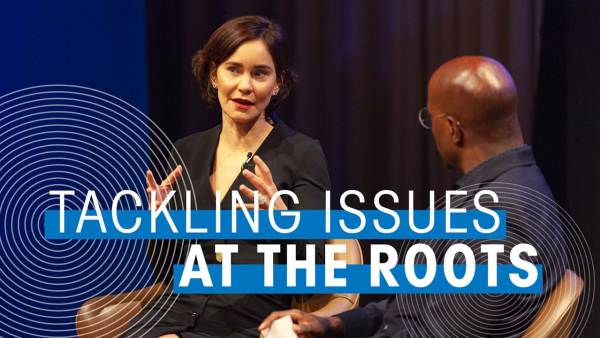
Good philanthropy needs government featuring Laura Arnold and Van Jones
Laura Arnold, co-chair of Arnold Ventures, believes policy change is the lever that will lead to sustainable change. She says we need to attack the systems that are creating the injustices we see, like criminal justice. Philanthropy can create better alternatives that governments can adopt.
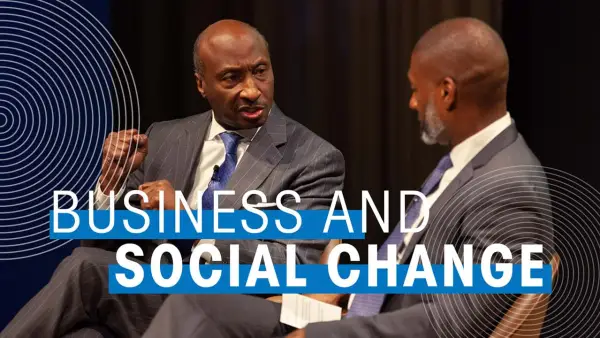
The business of justice featuring Kenneth Frazier and Charles Blow
Kenneth Frazier, CEO of Merck and Co, believes one of the greatest injustices in our society is the health disparities experienced by women of color. A zip code is more likely to determine health outcomes than genetic code. Frazier uses philanthropy to address mortality rate and wants to see more medical personnel listen to their women patients and patients of color.
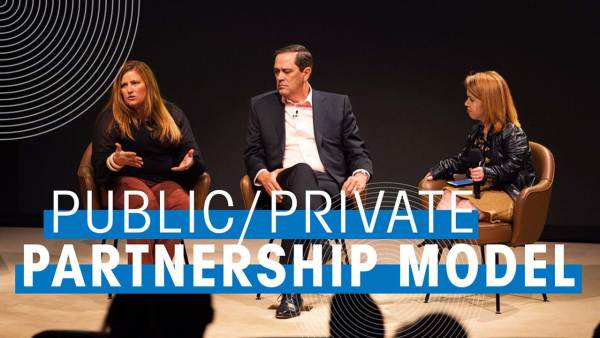
Public-private partnership: A new model for lasting impact featuring Jennifer Loving and Chuck Robbins
Jennifer Loving, CEO of Destination: Home, says a public-private partnership, like the one between her nonprofit and Cisco, headed by Chuck Robbins, can help create a model for the future of philanthropy, and tools like social bonds can help address some of the biggest crises of our time.
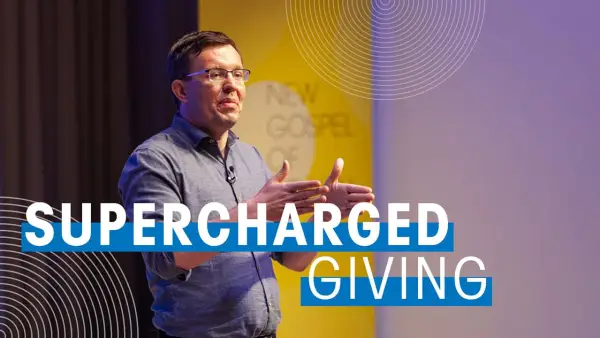
The new power of philanthropy featuring Henry Timms
CEO of Lincoln Center Henry Timms asks how philanthropy can supercharge civic engagement. Timms, who started Giving Tuesday, says trust-based philanthropy needs to shift from generosity to justice, driving more participation from more people, and encouraging meaningful ways to participate and collaborate.
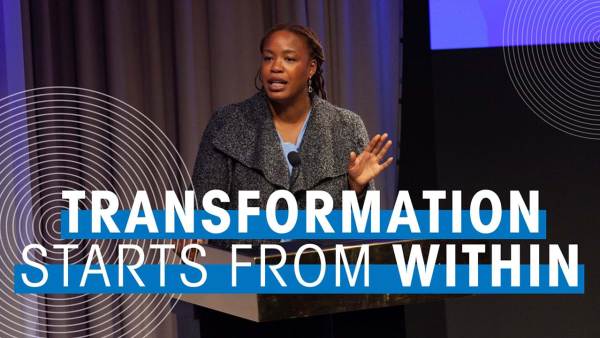
Transforming organizations from the inside featuring Heather McGhee
Heather McGhee, distinguished senior fellow at Demos, shares her experience of working to make the Demos think tank more diverse and led by people of color. Institutional racism, however slight, drives inequality, she says, so transformation needs to be a must-have and not a nice-to-have.
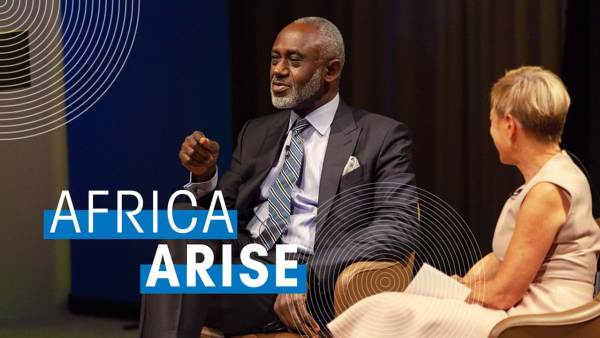
Africa, your time is now featuring Gbenga Oyebode and Hilary Pennington
Ford Foundation trustee Gbenga Oyebode has seen the value of impact investing on the African continent. He believes philanthropy should not just be giving, but investing with a social impact and an economic return. Giving is inherently part of African culture, but needs to be more strategic and collaborative.
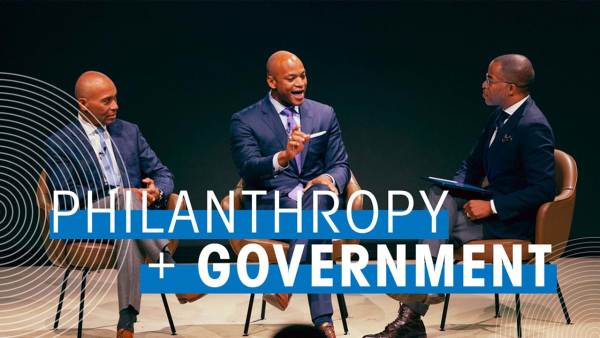
Why good government needs philanthropy featuring Deval Patrick and Wes Moore with Jonathan Capehart
Wes Moore, CEO of Robin Hood, and Deval Patrick, managing director of Bain Capital, see philanthropy working hand-in-hand with government in the fight for equality. Philanthropy can often provide the initial capital needed while government can take over and scale the solution.
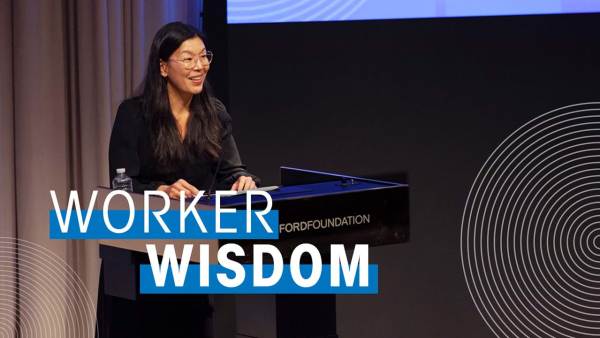
Bringing hidden labor to light featuring Ai-Jen Poo
Ai-jen Poo, executive director of the National Domestic Workers Alliance, says the sector of caregivers and domestic workers continues to grow. Building a future of work that works for all is centered on justice-based philanthropy and not a generosity model.
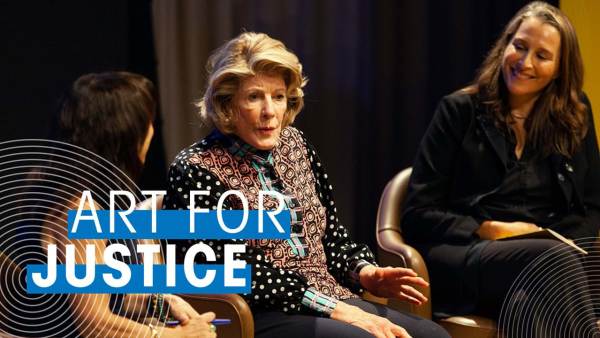
Art for Justice featuring Agnes Gund and Catherine Gund with Maria Hinojosa
The Art for Justice fund was created to help end mass incarceration. Founder Agnes Gund says philanthropy is about addressing issues like this. Catherine Gund believes art has an important part to play in the fight for racial justice and can help change the policies that led to mass incarceration.
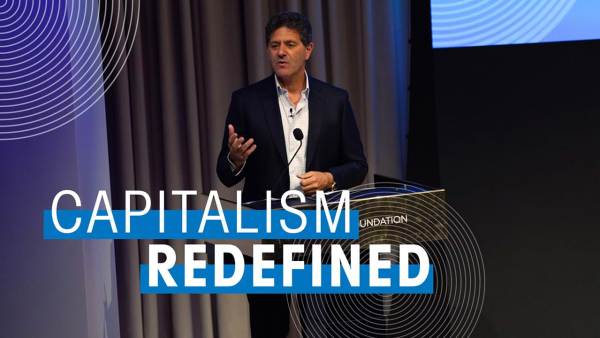
Capitalism redefined featuring Nick Hanauer
Entrepreneur Nick Hanauer asks us to reimagine the economy. He believes we need to change our beliefs about the economy to create a more just, more equitable society for all. By choosing better economic beliefs, we can change society for good.
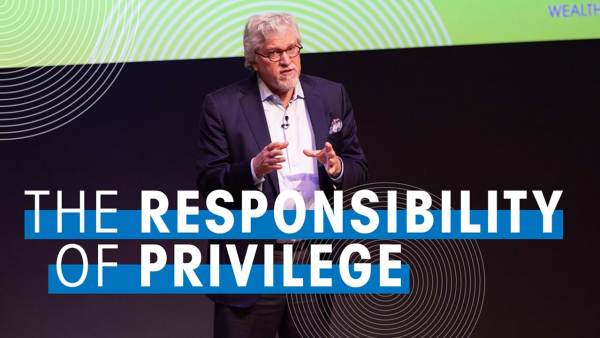
On using power and privilege for change featuring Jeff Raikes
Jeff Raikes, co-founder of the Raikes Foundation, says dismantling racism requires philanthropy to ditch its colorblind approach. People in power need to acknowledge that privilege is invisible to those who possess it. Privilege and power need to be transformed into a force for changing our society for the better.